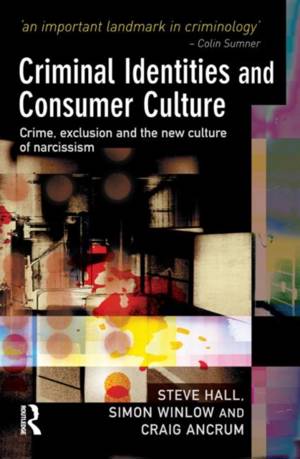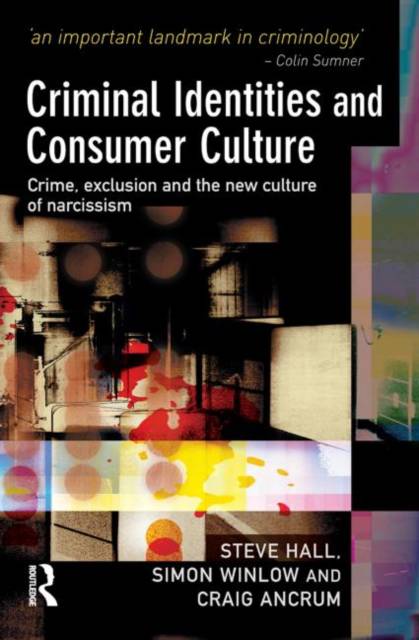
- Retrait gratuit dans votre magasin Club
- 7.000.000 titres dans notre catalogue
- Payer en toute sécurité
- Toujours un magasin près de chez vous
- Retrait gratuit dans votre magasin Club
- 7.000.0000 titres dans notre catalogue
- Payer en toute sécurité
- Toujours un magasin près de chez vous
Criminal Identities and Consumer Culture
Crime, Exclusion and the New Culture of Narcissm
Steve Hall, Simon Winlow, Craig AncrumDescription
This book offers the first in-depth investigation into the relationship between today's criminal identities and consumer culture. Using unique data taken from criminals locked in areas of permanent recession, the book aims to uncover feelings and attitudes towards a variety of criminal activities, investigating the incorporation of hearts and minds into consumer culture's surrogate social world and highlighting the relationship between the lived identities of active criminals and the socio-economic climate of instability and anxiety that permeates post-industrial Britain.
This book will be of interest to undergraduates, postgraduates, researchers and lecturers in all fields within the social sciences, but especially criminology, sociology, social policy, politics and anthropology.
Spécifications
Parties prenantes
- Auteur(s) :
- Editeur:
Contenu
- Nombre de pages :
- 264
- Langue:
- Anglais
Caractéristiques
- EAN:
- 9781843922568
- Date de parution :
- 01-09-08
- Format:
- Livre relié
- Format numérique:
- Genaaid
- Dimensions :
- 157 mm x 234 mm
- Poids :
- 612 g

Les avis
Nous publions uniquement les avis qui respectent les conditions requises. Consultez nos conditions pour les avis.






